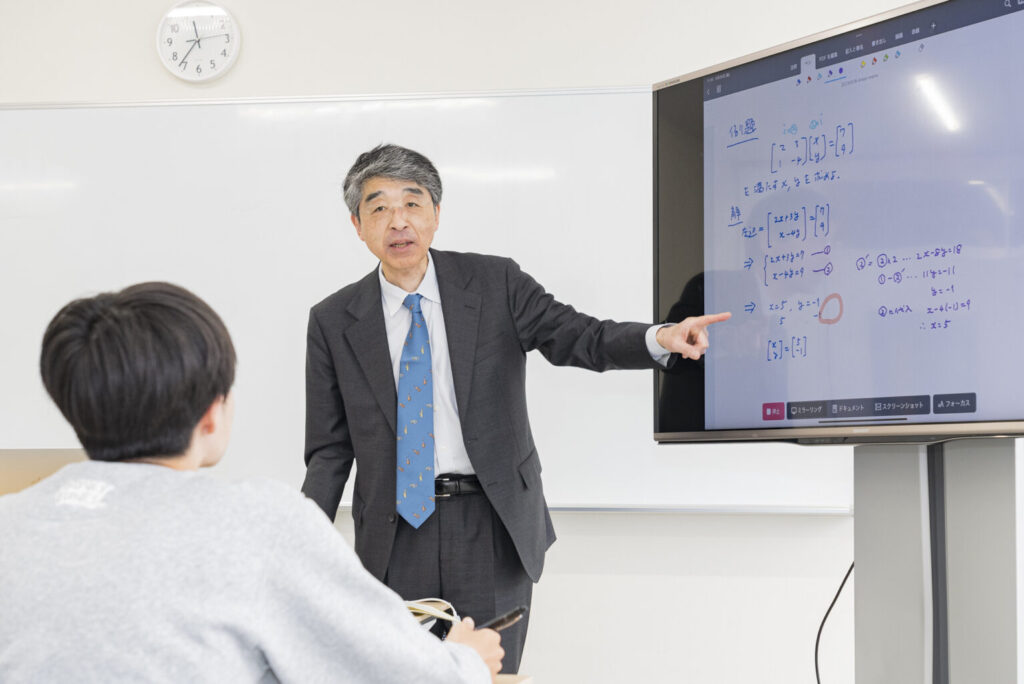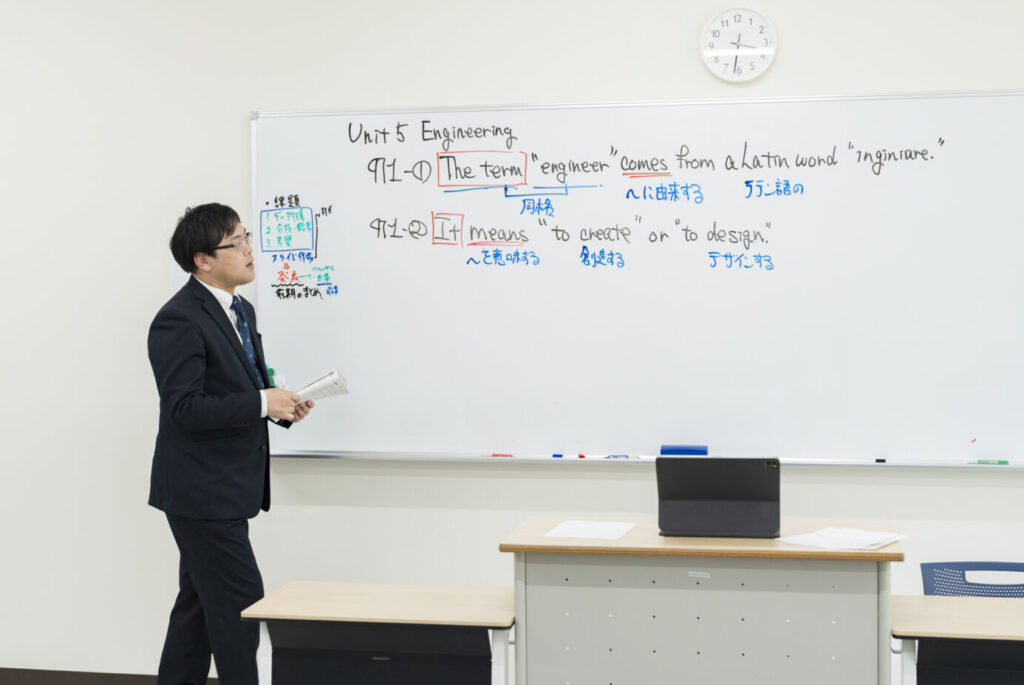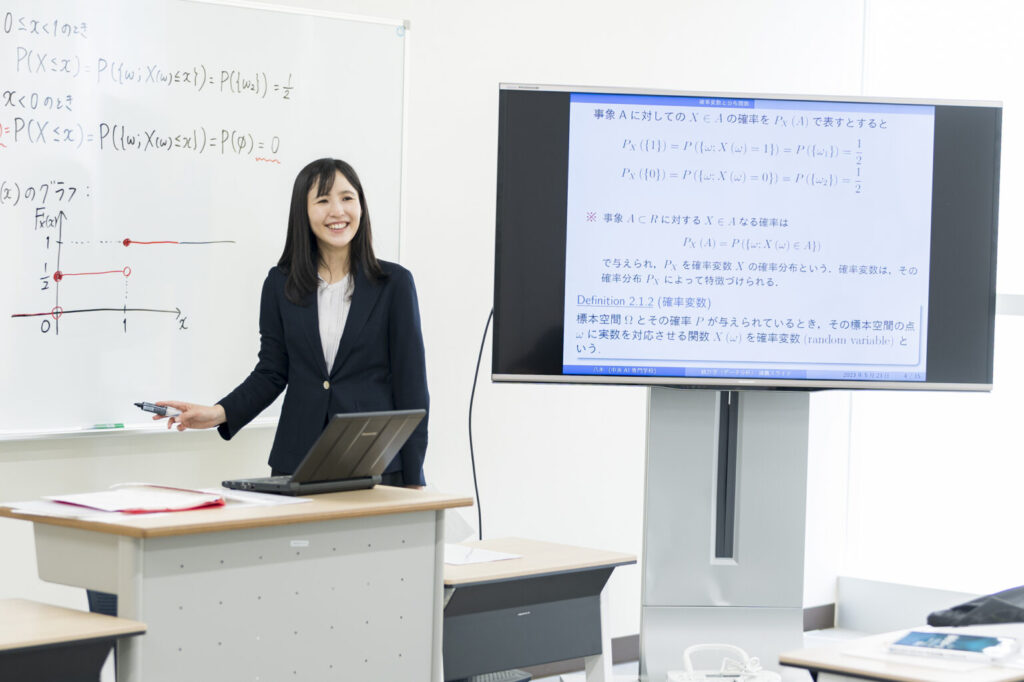What is a proficient data scientist?
Japanese
English
A good data scientist is proficient in both business and IT.
To become a data scientist who can work in a business setting, it is important to learn and understand numerous subjects, adding them to your skill set. After that, if you obtain the certifications related to data scientists listed below, you can become a data analyst, AI specialist, or engineer sought after by many companies..
LICENCE
Qualifications offered by our school
Information-related qualifications
(1) IT Passport
An IT Passport is a national examination that certifies that the student has acquired the basic knowledge of lT required to work in a digital career field.
(2) Basic Information Technology Engineer
The Basic Information Technology Engineer exam is a national certification for IT engineers. It certifies that the candidate has mastered the basic knowledge and practical skills required of an IT engineer.
Mathematics-related qualifications
(1) Statistics Certification Levels 2 – 4
These examinations are conducted by the Quality Assurance Promotion Foundation.
They are designed to evaluate knowledge and applied skills in statistics.
(2) Mathematics Proficiency Test Levels 1-2
These exams are designed to measure practical skills in mathematics including calculation, drawing, expression, measurement, organization, statistics, proofs and logic skills. This is a nationwide evaluation system conducted by the Japan Mathematics Proficiency Test Association.
PG (Programmer) Qualifications
(1) Python3 Engineer Certification Basic Exam
This exam tests knowledge of basic Python syntax.
(2) Python3 Engineer Certification Data Analysis Exam
This exam tests knowledge of libraries used in data analysis and mathematics.
DS (Data Scientist) qualifications
(1) G certification
This exam tests knowledge of machine learning and other AI technologies.
(2) DS certification (literacy level)
This is the only private certification for data scientists recognized by the Data Scientists Association of Japan.
※We provide support and guidance to students who aim to obtain these qualifications.
※We cannot guarantee that students will be able to obtain these qualifications upon graduation from our school.
CURRICULUM
The three pillars of theory and practice in the school's curriculum
1. Seven theoretical courses
2. Internship and field work at companies
3. Overseas training to acquire an international mindset
First year--Theoretical subjects
Courses that serve as the foundation of data science (Statistics, Mathematics, Introduction to Information Systems, Programming, etc.), are the core of the first-year curriculum. Students acquire the basic knowledge necessary to study practical subjects in the second year and beyond. Courses include: Mathematics I (Basics), Mathematics II (Linear Algebra), Statistics, Data Science Basics, Programming, Information Security and Introduction to Data Processing
Second year--Practical subjects
The second year curriculum builds on the foundational knowledge and skills acquired in the first year, expanding students’ knowledge into applied fields of data science, and specialized topics that will enable them to succeed as data scientists.
・Internship and fieldwork at companies
・International training to acquire an international mindset
SCHEDULE




Example 1st year course schedule (names and times of courses are subject to change)
Monday:
11:10-12:40 Homeroom
13:30-15:00 Communication Studies
15:10-16:40 Data Science Fundamentals I
Tuesday:
11:10-12:40 Data Science Fundamentals II
13:30-15:00 Statistics
15:10-16:40 Business English
Wednesday:
9:30-15:00 Introduction to Information Systems / Basic Programming
Thursday:
9:30-15:00 Programming
15:10-16:40 Support and guidance to students who aim to obtain professional qualifications
Friday:
9:30-11:00 Fundamentals of Mathematics
11:10-12:40 Mathematics II/Linear Algebra
13:30-15:00 Statistics
15:10-16:40 Introduction to Data Processing
Second year students acquire the necessary specialized knowledge and skills to succeed as data scientists. They also learn more about the practical aspects of data science and applied fields, and connect the basic knowledge acquired in the first year to the more practical aspects of data science. Students study data analysis and machine learning, do fieldwork, and acquire specialized knowledge and skills that will enable them to be succeed as data scientists.
FUTURE
Career paths after graduation
Employment in jobs such as data scientist, system engineer, data analyst, AI Engineer, Robotics Engineer, Coder, IoT engineer, Programmer, etc
MESSAGE
Become a data scien4st with strengths in both IT and business
-KOKI OOTSUKA-
This course will give you the opportunity to explore and gain experience in many subjects, ensuring you become not merely a data scien4st, but a data scien4st who can be successful in the world of business. This course will prepare you for the following qualifica4ons, helping you to become sought aEer by companies in the fields of data, analysis, AI, and other fields,


Target Qualifica4ons
・IT Passport
・Fundamental Informa4on Technology Engineer Examina4on
・Applied Informa4on Technology Engineer Examina4on
・Japanese Sta4s4cal Society Cer4ficate Grades 1-3
・Japanese Sta4s4cal Society Cer4ficate: Data Science Founda4ons
・Japanese Sta4s4cal Society Cer4ficate: Data Science
・Development
・Japanese Sta4s4cal Society Cer4ficate: Data Science Expert





